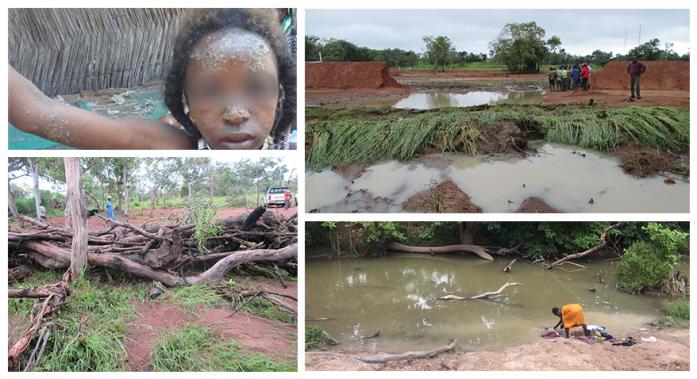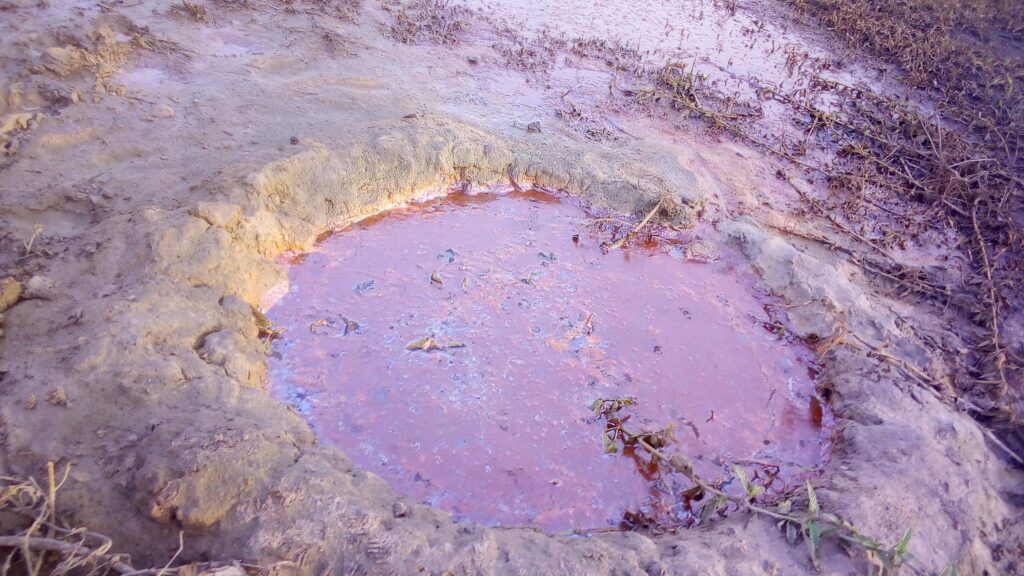UK NCP for the OECD Guidelines decides the serious issues raised “merit further examination”
The UK government has accepted a complaint filed by three human rights groups against Glencore UK for violations of the OECD Guidelines for Multinational Enterprises at its Badila oilfield in southern Chad. It marks the first time the mining giant is facing an OECD complaint in the UK.
The complaint details environmental and human rights harms as well as social engagement failures by the company. Following an initial assessment, UK officials decided the issues raised by the human rights groups “merit further examination”.
The UK National Contact Point (NCP) at the Department for International Trade oversees the implementation of the OECD Guidelines for Multinational Enterprises for responsible business conduct of UK-based companies operating domestically or overseas. The Guidelines set standards across a range of issues such as human rights, labour rights and the environment.
The complaint on behalf of local communities was filed by UK-based corporate watchdog RAID, the Public Interest Law Center (PILC) in Chad and the Association of Young Chadians of the Petroleum Zone (Association des Jeunes Tchadiens de la Zone Petroliere – AJTZP). An estimated 18,000 people live in the vicinity of the Badila oilfield.
“The UK NCP’s decision to accept the complaint provides an opportunity for those harmed at Glencore’s operations to finally be heard and to find remedy for the harms they suffered,” said Anneke Van Woudenberg, the Executive Director of RAID, whose organisation published a detailed report about the harm in March 2020. “No community, whether in Africa or elsewhere, should have to wait more than two years for a company to properly investigate whether its toxic spill caused injuries to children and others.”
The complaint details the effects of a toxic wastewater spill on 10 September 2018 when a basin holding produced water, a by-product of crude oil production, collapsed at the Badila oilfield. Eighty-five million litres of wastewater (the equivalent of 34 Olympic-sized swimming pools) flooded agricultural fields and then poured into the Nya Pende River used by local residents for drinking, bathing, washing clothes and watering livestock. A few weeks later, local residents also reported an oil pipe leak, an incident contested by the company.
At least 50 local residents living near Glencore’s oil operations reported burns, skin lesions, sickness and diarrhoea after bathing in or using the contaminated river water in the weeks following the incident. Many of those harmed were children, some of whom were hospitalised. Livestock drinking from the river also died.

According to residents, the basin had been leaking weeks before it collapsed, but Glencore failed to properly address the problem or to warn local residents about the impending danger. Local residents say Glencore has still not acknowledged the harm caused or provided remedy.
The UK NCP will now offer to mediate between the parties to find a solution. If mediation is refused or fails to achieve agreement, the NCP will examine the case to determine whether the violations highlighted by the human rights groups occurred and will publish its findings.
Glencore is one of the world’s largest natural resource companies and is listed on the London Stock Exchange. Glencore’s oil business, including the Badila oilfield operated by PetroChad Mangara Ltd, is managed by Glencore UK Ltd out of its London headquarters.
Glencore UK refutes that the wastewater spills posed a health risk to local communities. In correspondence with RAID Glencore said: “We continue to believe that the identified medical cases are unrelated to our operations, however, we are committed to trying to understand the root causes.” Glencore UK said it would commission an “independent Health Impact Risk Assessment” at the Badila oilfield, but this has yet to be concluded.
On 21 July 2020, a second spill occurred at the Badila oilfield from a waste oil sump. The incident was referenced in the complaint but the UK NCP said it would not consider this more recent spill since “investigations in relation to this event are ongoing”.
“Glencore should listen to local communities and take their concerns seriously, not just brush them aside as if they are of no importance,” said Delphine Kemneloum Djiraïbé, the chief attorney of PILC. “We look forward to being able to raise the communities’ concerns directly with Glencore via the UK NCP and to find solutions.”
Additional Links:
For a copy of the OECD complaint, click here. For the NCP initial assessment, click here.
RAID’s March 2020 report Glencore’s Oil Operations in Chad: Local Residents Injured and Ignored
Correspondence between RAID and Glencore click here.
Press release: Rights Groups Say Glencore’s Sustainability Report Lacks Credibility
Further Notes:
The OECD Guidelines for Multinational Enterprises are the only government-backed international instrument on responsible business conduct with a built-in grievance mechanism. Although the OECD Guidelines are not legally binding on companies, they are binding on signatory governments, such as the UK, which is required to ensure the Guidelines are implemented and observed. The NCP receives complaints against companies that have allegedly failed to adhere to the Guidelines’ standards.

